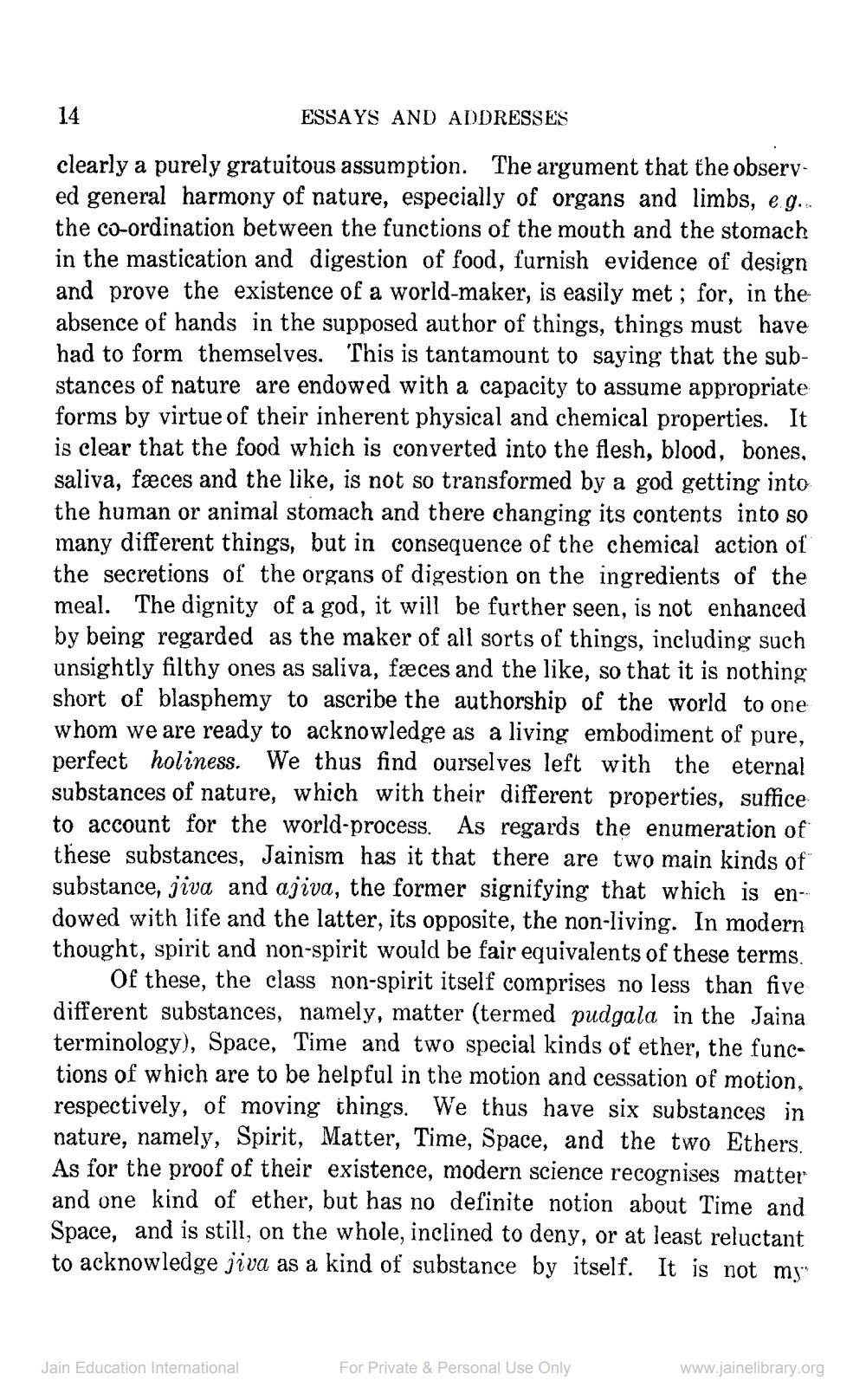________________
ESSAYS AND ADDRESSES
clearly a purely gratuitous assumption. The argument that the observ ed general harmony of nature, especially of organs and limbs, eg... the co-ordination between the functions of the mouth and the stomach in the mastication and digestion of food, furnish evidence of design and prove the existence of a world-maker, is easily met; for, in the absence of hands in the supposed author of things, things must have had to form themselves. This is tantamount to saying that the substances of nature are endowed with a capacity to assume appropriate forms by virtue of their inherent physical and chemical properties. It is clear that the food which is converted into the flesh, blood, bones, saliva, fæces and the like, is not so transformed by a god getting into the human or animal stomach and there changing its contents into so many different things, but in consequence of the chemical action of the secretions of the organs of digestion on the ingredients of the meal. The dignity of a god, it will be further seen, is not enhanced by being regarded as the maker of all sorts of things, including such unsightly filthy ones as saliva, fæces and the like, so that it is nothing short of blasphemy to ascribe the authorship of the world to one whom we are ready to acknowledge as a living embodiment of pure, perfect holiness. We thus find ourselves left with the eternal substances of nature, which with their different properties, suffice to account for the world-process. As regards the enumeration of these substances, Jainism has it that there are two main kinds of substance, jiva and ajiva, the former signifying that which is endowed with life and the latter, its opposite, the non-living. In modern thought, spirit and non-spirit would be fair equivalents of these terms.
Of these, the class non-spirit itself comprises no less than five different substances, namely, matter (termed pudgala in the Jaina terminology), Space, Time and two special kinds of ether, the func tions of which are to be helpful in the motion and cessation of motion, respectively, of moving things. We thus have six substances in nature, namely, Spirit, Matter, Time, Space, and the two Ethers. As for the proof of their existence, modern science recognises matter and one kind of ether, but has no definite notion about Time and Space, and is still, on the whole, inclined to deny, or at least reluctant to acknowledge jiva as a kind of substance by itself. It is not my
14
Jain Education International
For Private & Personal Use Only
www.jainelibrary.org




